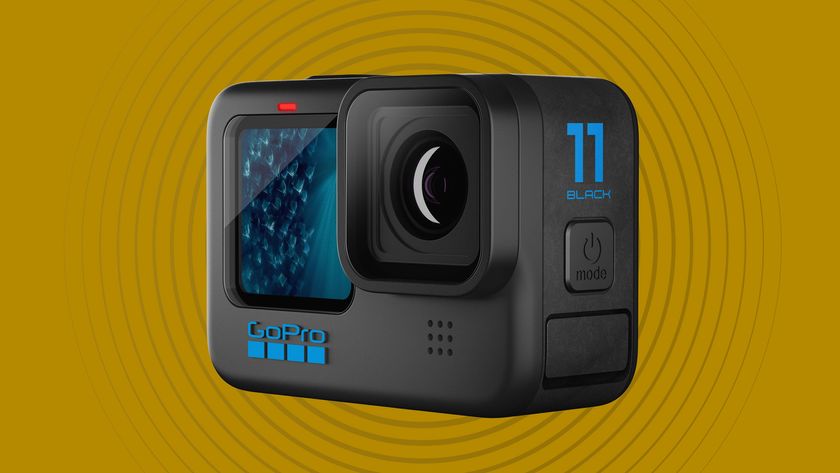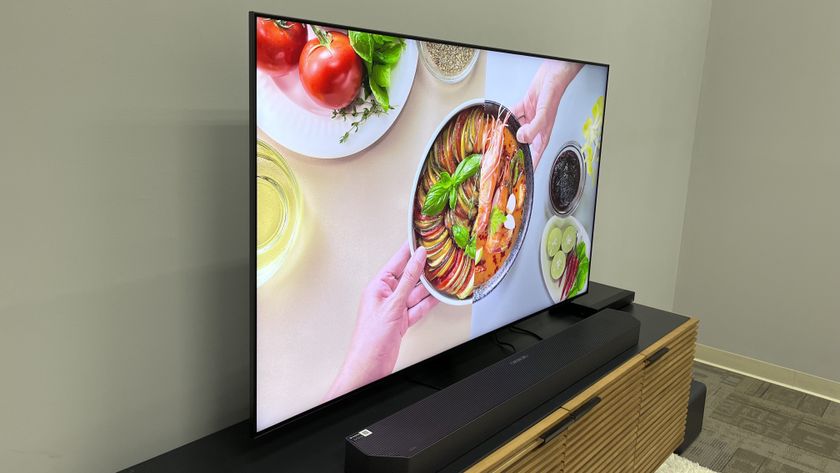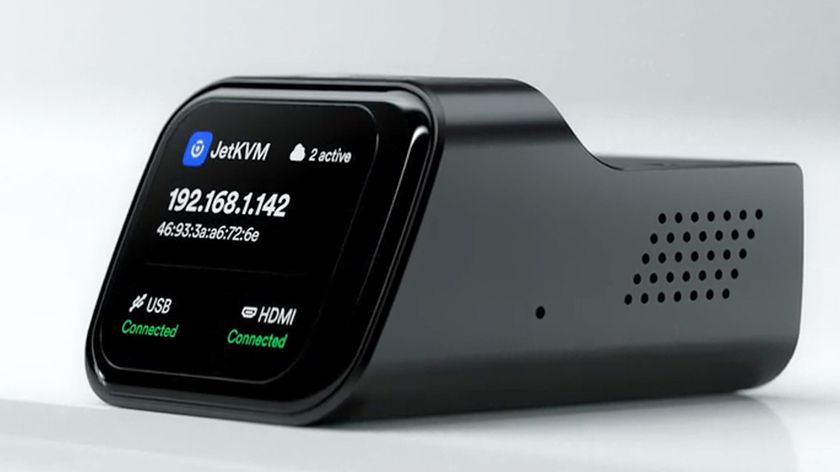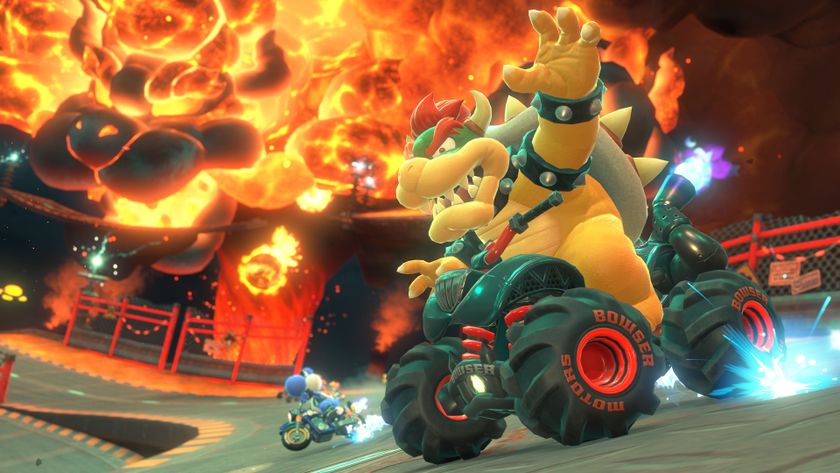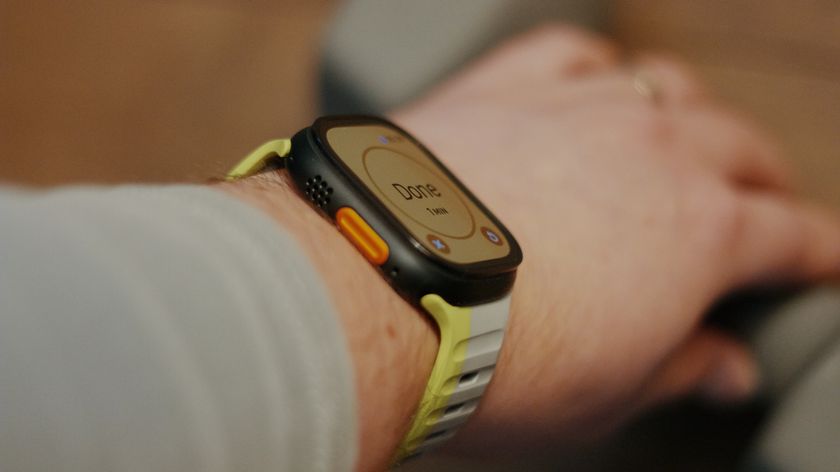GoPro plans to dethrone DJI with new modular camera, patents suggest
Will the GoPro Karma Grip be reborn as a new modular system?
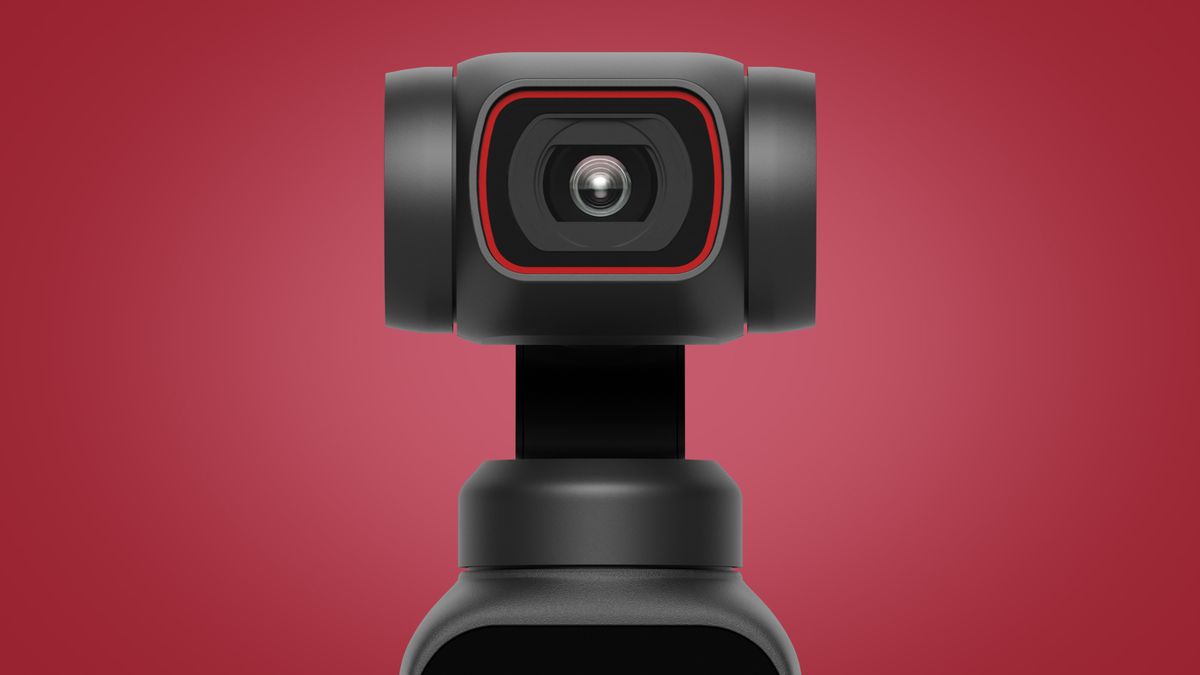
GoPro could be building a modular, gimbal-stabilized camera system to take on the DJI Pocket 2 and DJI FPV, according to some fascinating new patents.
The patents, which were published on March 10, contain some detailed drawings and descriptions of a system that includes a GoPro Session-style camera module, a mechanically stabilized gimbal, and a connector that allows both to slot into a handheld grip or even a drone.
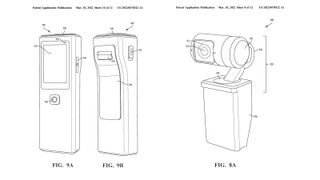
The "image capture module" described by the patents appears to be a new gimbal-stabilized camera, rather than an existing one like the Hero 10 Black. It looks smaller than the latter and could "track a user based on position data from a beacon module and/or based on computer vision tracking of the user in images from the image sensor". This could be the ActiveTrack-style autofocus we've seen on the likes of the DJI Pocket 2, which can turn to follow subjects thanks to its gimbal.
According to the patents, this camera would sit in a three-axis mechanical stabilization system which could allow up to 360-degrees of rotation. The gimbal could also have a handy "fold flat" mode to protect it when you turn it off, which would kick in after 10, 20 or 30 seconds to let you "easily slip the image capture module into a pocket carrying case or backpack".
The really interesting part of the patents, though, and one that chimes with GoPro's recent earnings call comments about plans to make new "types" of action camera, is its modular design. The patents say that the camera and gimbal include a "keyed connector" that is "configured to interchangeably connect the mechanical image stabilization system to an aerial vehicle (e.g a quadcopter drone)" and also a "handheld module".
It's the handheld grip, which would create a DJI Pocket 2-style vlogging camera, that's illustrated in some detail. The patents say that it'd include "a display, a record button, a status indicator light" and two fastening mechanisms, along with a battery release catch (which suggests its batteries will be swappable). The grip is also described as having a "rubbery grip texture" and a shape that's designed for handheld shooting, much like its discontinued GoPro Karma Grip from 2016.
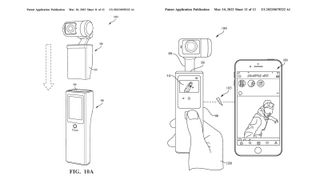
The patents are ambiguous about whether or not this grip's display will be a touchscreen, but say that it might be possible to use it to change the gimbal angle. The description adds that you could also enter "selfie-mode or "HiLight Tag" by voice command and/or input received via the touch interface of the display". Apparently, disconnecting the camera module from this grip "may only take a few seconds for a user to complete".
Get daily insight, inspiration and deals in your inbox
Sign up for breaking news, reviews, opinion, top tech deals, and more.
The main issue with gimbals is that they're usually fragile, which wouldn't really fit GoPro's rugged style. But the patents suggest GoPro's device would be a bit tougher than the DJI Pocket 2, with the gimbal sitting flush with the grip or even hiding its roll motor inside the accessory, giving it a "low profile and protecting the gimbal to reduce risk of damage". GoPro says this setup, which would give it the appearance of a two-axis gimbal, "may provide advantages" over rivals that have "all of their gimbals exposed".
One other advantage GoPro could bring to the vlogging party is the combination of this mechanical image stabilization with its already excellent electronic stabilization. The patents include descriptions of a motion-tracking module and the use of electronic stabilization to further correct rotations of the camera sensor, which could all add up to an incredibly smooth filming experience – if the patents are indeed a sign of what's to come from the action cam giant.
Analysis: A peek at GoPro's 2022 plans?
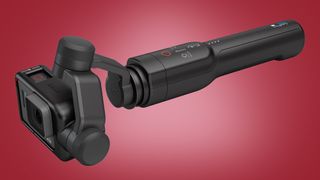
Patents can never be taken as a concrete sign of what a company is working on, as many never see the light of day. But the level of detail in these documents, and the degree to which they chime with GoPro's comments last month about adding two more "distinct camera products" to its lineup "at the end of 2022", suggest there's certainly a good chance that we'll see it make something on these lines.
In some ways, the concept is a reprise of its earlier GoPro Karma drone and GoPro Karma Grip, which ultimately didn't fare very well. But there are also distinct differences, with GoPro this time seemingly content to make a drone camera (rather than a drone itself) and a handheld grip that has mechanical stabilization that could combine nicely with its electronic HyperSmooth tech.
If the patents are fully realized, it'd put GoPro on another collision course with DJI in 2022. DJI already makes the Pocket 2, which we rate as one of the best vlogging cameras, but one of its weaknesses has always been its fragility that means it can't be classed as an action cam. If GoPro can make a modular rival that adds some Hero toughness to the equation, that could be a compelling new option for YouTubers.
A modular system with a new GoPro camera would also make sense, given the existing GoPro Hero 10 Black is for some users, as GoPro CEO Nick Woodman recently described, "more than they need, or not enough of what they need”. In that same earnings call, he added that "we think it’s important to build very differentiated specialized solutions for different use cases to appeal to entirely new groups of users", and these patents would fit that billing.
While the system would be more niche than its current Hero lineup, it could also create a versatile GoPro range that'd provide a tailored option for most adventure sports scenarios, rather than shoehorning the Hero 10 Black into every use case. We're looking forward to seeing if GoPro does indeed build on the patents or if they are, as is sometimes the case with patents, an elaborate red herring.
- Check out our guide to the world's best action cameras

Mark is TechRadar's Senior news editor. Having worked in tech journalism for a ludicrous 17 years, Mark is now attempting to break the world record for the number of camera bags hoarded by one person. He was previously Cameras Editor at both TechRadar and Trusted Reviews, Acting editor on Stuff.tv, as well as Features editor and Reviews editor on Stuff magazine. As a freelancer, he's contributed to titles including The Sunday Times, FourFourTwo and Arena. And in a former life, he also won The Daily Telegraph's Young Sportswriter of the Year. But that was before he discovered the strange joys of getting up at 4am for a photo shoot in London's Square Mile.

